
下载亿题库APP
联系电话:400-660-1360

下载亿题库APP
联系电话:400-660-1360

请谨慎保管和记忆你的密码,以免泄露和丢失

请谨慎保管和记忆你的密码,以免泄露和丢失

各位要参加2020年GMAT考试的小伙伴们注意啦!今天帮考网要给各位小伙伴分享2020年GMAT考试《GMAT语文》的每日一练,感兴趣的小伙伴赶快来看看哦!
In the industrialized nations, the last century has witnessed a shortening of the average workday from twelve hours or longer to less than eight hours. Mindful of this enormous increase in leisure time over the past century, many people assume that the same trend has obtained throughout history, and that, therefore, prehistoric humans must have labored incessantly for their very survival.
We cannot, of course, directly test this assumption. However, a study of primitive peoples of today suggests a different conclusion. The Mbuti of central Africa, for instance, spend only a few hours each day in hunting, gathering, and tending to other economic necessities. The rest of their time is spent as they choose. The implication is that the short workday is not peculiar to industrialized societies. Rather, both the extended workday of 1880 and the shorter workday of today are products of different stages of the continuing process of industrialization.
1. Which of the following inferences about industrialization is best supported by the passage above?
(A) People in advanced industrialized societies have more leisure time than those in nonindustrialized societies.
(B) An average workday of twelve hours or more is peculiar to economies in the early stages of industrialization.
(C) Industrialization involves a trade-off between tedious, monotonous jobs and the benefits of increased leisure.
(D) It is likely that the extended workday of an industrializing country will eventually be shortened.
(E) As industrialization progresses, people tend to look for self-fulfillment in leisure rather than work.
2. Which of the following, if true, would most greatly strengthen the argument made in the passage above?
(A) In recent decades, the economy of the Mbuti has been markedly affected by the encroachment of modern civilization.
(B) The life-style of the Mbuti is similar to that of prehistoric humans.
(C) The Mbuti have no words in their language to express the distinction between work activities and leisure activities.
(D) The workday of a European peasant in medieval times averaged between eleven and fifteen hours.
(E) The members of the Shaklik tribe in central Asia have an average workday of ten to twelve hours.
3. Gloria: Those who advocate tuition tax credits for parents whose children attend private schools maintain that people making no use of a government service should not be forced to pay for it. Yet those who choose to buy bottled water rather than drink water from the local supply are not therefore exempt from paying taxes to maintain the local water supply.
Roger: Your argument is illogical. Children are required by law to attend school. Since school attendance is a matter not of choice, but of legal requirement, it is unfair for the government to force some parents to pay for it twice.
Which of the following responses by Gloria would best refute Roger’s charge that her argument is illogical?
(A) Although drinking water is not required by law, it is necessary for all people, and therefore my analogy is appropriate.
(B) Those who can afford the tuition at a high-priced private school can well bear the same tax burden as those whose children attend public schools.
(C) If tuition tax credits are granted, the tax burden on parents who choose public schools will rise to an intolerable level.
(D) The law does not say that parents must send their children to private schools, only that the children must attend some kind of school, whether public or private.
(E) Both bottled water and private schools are luxury items, and it is unfair that some citizens should be able to afford them while others cannot.
4. A nutritionist studying the effects of massive doses of vitamin C found that of a group of 600 people who regularly took 1,500 mg of vitamin C daily for a year, fewer than 9 percent suffered serious cases of flu; of a group of 600 people who took 250 mg of vitamin C (the standard recommended daily allowance) daily for a year, 34 percent suffered at least one serious case of flu; and of a group of 600 people who took no vitamin C for a year (other than that found in the foods in a balanced diet), 32 percent suffered at least one serious case of flu.
Which of the following hypotheses is best supported by the evidence above?
(A) The effectiveness of vitamin C in preventing serious cases of flu increases in direct proportion to the amount of vitamin C taken.
(B) Vitamin C is helpful in preventing disease.
(C) Doses of vitamin C that exceed the standard recommended daily allowance by 500 percent will reduce the incidence of serious cases of flu by 25 percent.
(D) Massive doses of vitamin C can help to prevent serious case of flu.
(E) A balanced diet contains less than 250 mg of vitamin C.
好了,以上就是2020年GMAT考试《GMAT语文》每日一练(16)的全部内容了,如果各位小伙伴还有不明白的地方,可以进入帮考网咨询了解哦!
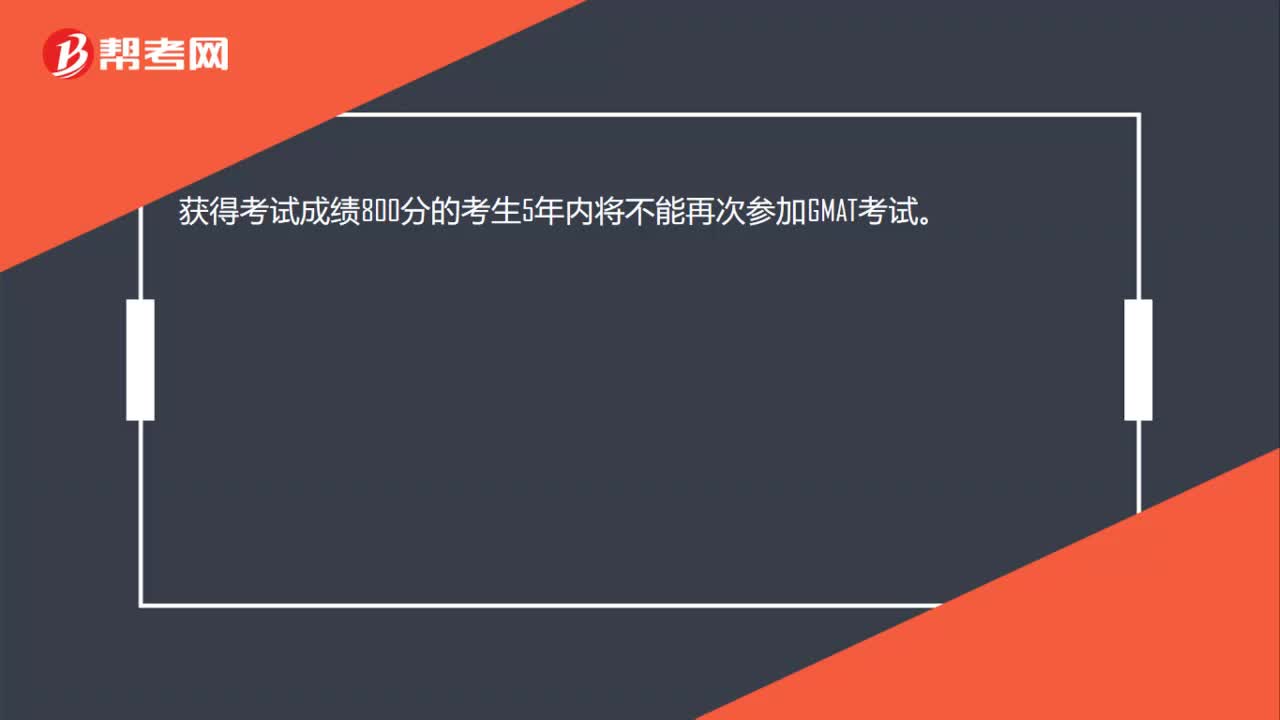 18
18什么情况下不能再次参加GMAT考试?:获得考试成绩800分的考生5年内将不能再次参加GMAT考试。
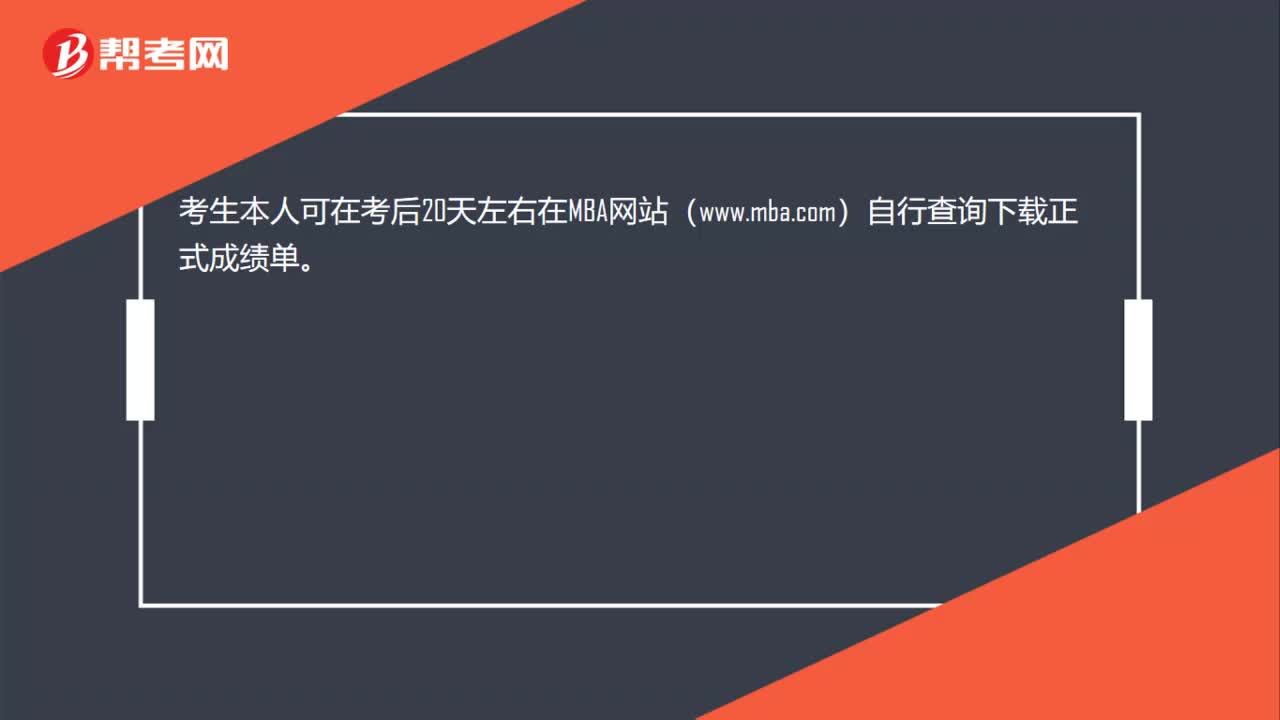 21
21如何获取GMAT考试成绩?:考生本人可在考后20天左右在MBA网站(www.mba.com)自行查询下载正式成绩单。
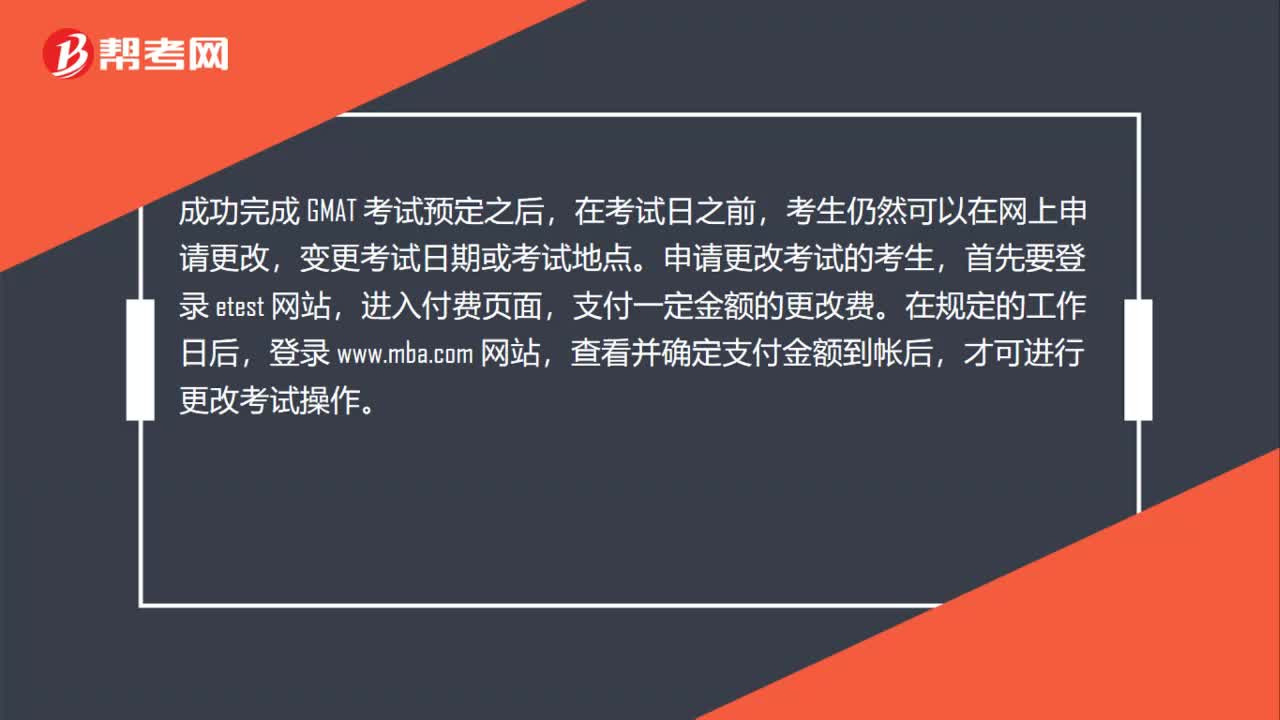 81
81如何更改或取消GMAT考试?:如何更改或取消GMAT考试?在考试日之前,考生仍然可以在网上申请更改,变更考试日期或考试地点。申请更改考试的考生,进入付费页面,支付一定金额的更改费。在规定的工作日后,查看并确定支付金额到帐后,才可进行更改考试操作。GMAT 考试允许考生取消本人先前的报名,考生可以通过网上完成退考。登录www.mba.com网站,进入选择退考的链接,选择退考。网站会向考生的邮箱发送电子邮件确认退考成功。
 00:25
00:252020-06-01
 00:18
00:182020-06-01
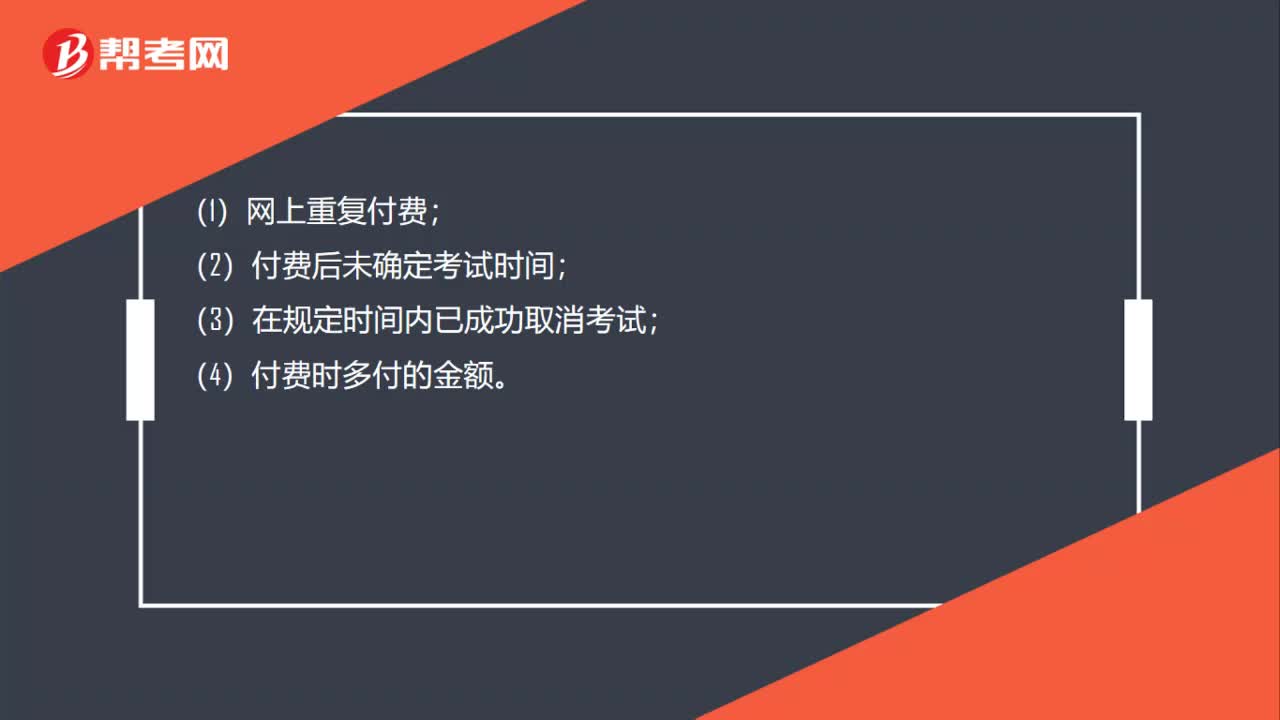 00:26
00:262020-06-01
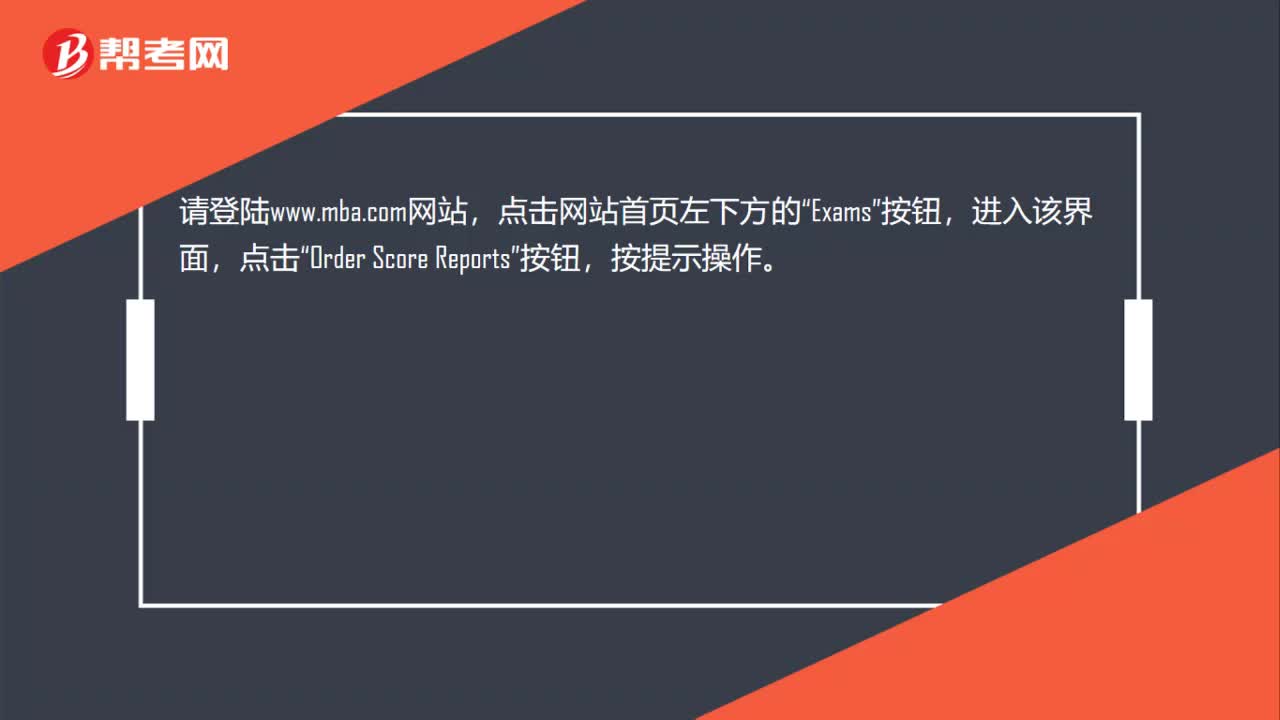 00:26
00:262020-06-01
 00:21
00:212020-06-01

微信扫码关注公众号
获取更多考试热门资料